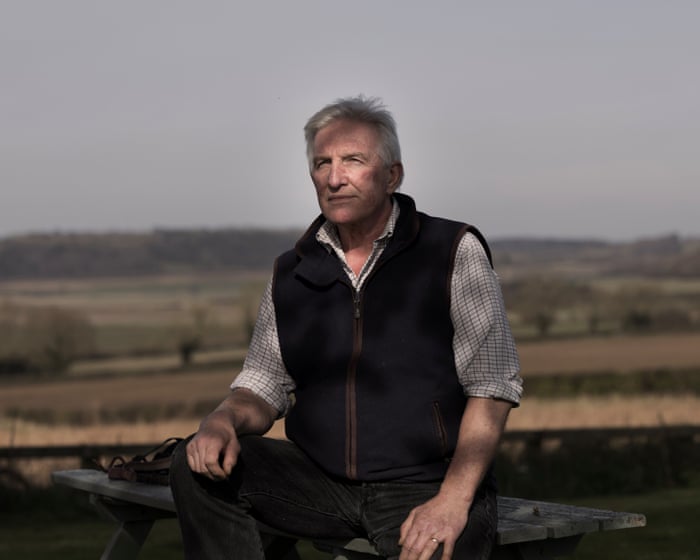As children across the UK return to school this week, I’m reminded that nearly one in three lives in poverty. That number is shocking enough, but behind each statistic is a child—one who may arrive at school hungry, live in unstable housing, or miss out on the activities that help them grow.
A few years ago, I visited a school in north-east England where many students showed up with empty lunchboxes. A breakfast club fed them when they arrived. They were eligible for free school meals, so they received a hot lunch. After school, trestle tables were set up in the playground, stocked with food from a local food bank. As the children left, they filled their lunchboxes to take something home for tea.
I was deeply shaken. This is the reality of child poverty—the daily experience for far too many children and families. Childhood should be full of opportunity, but for too many, it begins and ends in struggle.
Last week, I spent the morning at the Junction Multibank in Middlesbrough, where over 40% of children grow up in poverty. This organisation brings together charities and companies to distribute surplus goods—clothes, furniture, hygiene products—to those in need. In less than a year, they’ve provided 1.5 million items to more than 224,000 people. Their work is inspiring, but also sobering. That such crisis support is necessary in a wealthy country like ours should be a national disgrace.
Of course, leaders face tough choices with public finances. But let’s be clear: policies like the two-child limit and the benefit cap are not neutral. They deliberately withhold support from hundreds of thousands of children, cutting £3,500 per year for each third or subsequent child in low-income families. While these policies may seem to save money now, they create far greater costs down the line. Children who go to school hungry are more likely to fall behind, and those lost opportunities affect them throughout their lives—economically, socially, and personally.
You only get one childhood. If it’s damaged, the effects can last a lifetime. When so many lives are harmed this way, all of society suffers. There is no way to end child poverty without first ending the two-child limit. Scrapping these welfare caps would lift half a million children out of poverty overnight.
As a church leader, I often think about the moral principles that guide our society. Surely, we can all agree on supporting children. But I worry when policies deny help to so many simply because of their birth order. Even if you believe parents shouldn’t have more than two children, why make the child suffer and create more problems for the future?
We need creative ideas and bold action. Most of all, we need the will to make the right choices for our children. Change comes at a cost, and it must be paid for. Gordon Brown suggests that raising a few gambling taxes to match other countries would be a good start. But if we do nothing, the cost to the next generation and our society will be far greater.
Local efforts like the Junction Multibank and countless community and church projects play a vital role in helping families in crisis. But charity alone can’t solve a problem this big. Only the government can make the systemic changes needed to reduce poverty and restore dignity.
I have three daughters. This is how the two-child benefit limit affects us every day | Anonymous
Read more
Jesus said, “Love your neighbour as yourself.” How can we accept a society where only some children have opportunities, and so many have none? In one of the world’s richest countries, this should be unthinkable.The level of child poverty in the UK today is simply unacceptable. We can and must do better.
I find hope in the compassion and resilience of communities like those I visited in Middlesbrough last week, in the determination and creativity of local church and community leaders, and in the generosity of people committed to helping. But there is still more to do. If we act now, we can turn that hope into real change.
This must include ending the two-child limit and the benefit cap, along with broader reforms to the benefits system. We need to move these issues beyond party politics and recognize that it is in everyone’s interest for all children to have a fair start in life. Every single child deserves the opportunity to thrive.
Stephen Cottrell is the Archbishop of York and Primate of England.
Frequently Asked Questions
Of course Here is a list of FAQs about abolishing the twochild benefit cap designed to be clear and helpful for anyone looking to understand the issue
General Beginner Questions
1 What is the twochild benefit cap
Its a government policy that limits the amount of financial support a family can receive to the first two children Any children born after April 2017 are not supported by these benefits
2 Why was the twochild limit introduced
The government introduced it in 2017 to encourage families who rely on benefits to make the same financial decisions about having more children as those who are employed
3 How many children are affected by this policy
Over 15 million children in the UK are living in households affected by the twochild limit a number that grows every year
4 Whats the main argument for getting rid of the cap
The main argument is that it unfairly punishes children for being born into a larger family pushing more families into deep and avoidable poverty
5 Does the cap affect all families
No there are some exceptions such as multiple births or children conceived as a result of nonconsensual sex However many families who fall on hard times due to job loss illness or family breakdown do not qualify for these exceptions
Impact Consequences
6 How does the cap push families into poverty
By denying essential financial support for third or subsequent children the policy significantly reduces a familys overall income making it much harder to afford basics like food clothing and adequate housing
7 Does this policy actually save the government money
While it reduces welfare spending in the short term many argue it creates higher longterm costs for public services Children growing up in poverty are more likely to need support from health social and educational services later on
8 Are some communities impacted more than others
Yes the policy disproportionately affects larger families which are more common in certain religious and ethnic communities making it a policy with a unequal impact
9 What is the rape clause
This is the term critics use for the exception that requires a woman to prove a child was conceived through nonconsensual sex to receive support for a third child Many find this process invasive traumatic and



